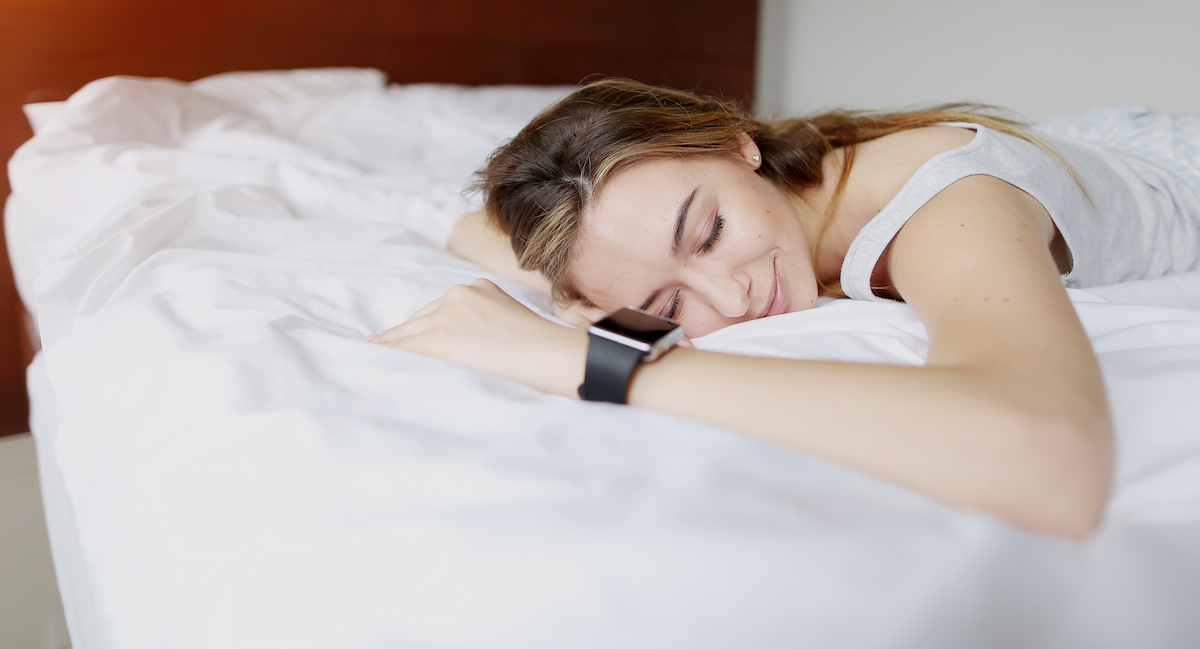<< Back
What’s the Best Bedtime for You and Your Heart? Here’s the One Hour Window

November 17, 2021
Wrist-worn accelerometers might have unearthed the ideal bedtime, at least for people who want to avoid cardiovascular disease.
Scientists now say, after a six-year sleep study of more than 88,000 people who used a wearable movement monitor nightly, that going to sleep between 10 p.m. and 11 p.m. can lower your risk of heart disease. The study, published in the European Heart Journal — Digital Health, found a 12 percent greater risk of developing heart disease among those with bedtimes between 11 p.m. and 11:59 p.m. Those with after-midnight bedtimes had a 25 percent higher risk and those with pre-10 p.m. bedtimes had a 24 percent higher risk.
“The body has a 24-hour internal clock, called circadian rhythm, that helps regulate physical and mental functioning,” says Dr. David Plans of the University of Exeter in England. “While we cannot conclude causation from our study, the results suggest that early or late bedtimes may be more likely to disrupt the body clock, with adverse consequences for cardiovascular health.”
The study’s participants were between 43 and 79 years old, with almost 60 percent women. Researchers collected sleep information from the wrist monitors and health history and lifestyle habits from a questionnaire.
During the six-year study, 3,172 (3.6 percent) developed cardiovascular disease, whether a heart attack, heart failure, a stroke or chronic ischemic heart disease. The highest rate was among people who went to bed after midnight. The lowest rate was among people with bedtimes between 10 p.m. and 10:59 p.m.
Researchers say the link between bedtime and heart disease is stronger among women.
The Centers for Disease Control and Prevention also recommends adults get at least seven hours of sleep each night, with less sleep linked to multiple health risks. (About 34 percent of Connecticut residents reported getting less than seven hours of sleep, according to County Health Rankings & Roadmaps, a Robert Wood Johnson Foundation and University of Wisconsin Population Health Institute program.)
“Get adequate sleep,” says Dr. Jeffrey Kegel, a Heart & Vascular Institute cardiologist at Windham Hospital. “Turn off electronic devices at least a half-hour before bed. Avoid caffeine at night. And get evaluated for sleep apnea if you’re at risk.”
Adults with sleep disorders, though not more likely than others to get COVID-19, have a 31 percent higher risk of hospitalization or death if infected, according to a new study published this month in JAMA Network Open of 360,000 patients tested for the virus at the Cleveland Clinic health system. Of the group, 5,400 also completed a sleep study.
Here are signs of a sleep disorder, says Dr. Robert Bundy, Medical Director of the Center for Sleep Medicine at Windham Hospital.
- Snore loudly.
- Experience depression or forgetfulness.
- Become irritable.
- Suffer from morning fatigue or insomnia.
- Wake up thirsty or with a headache.
“In some instances,” he says, “difficulty sleeping or difficulty staying awake can be a sign of other health concerns, including heart disease, lung disease, nerve or pain disorders, depression or anxiety.”